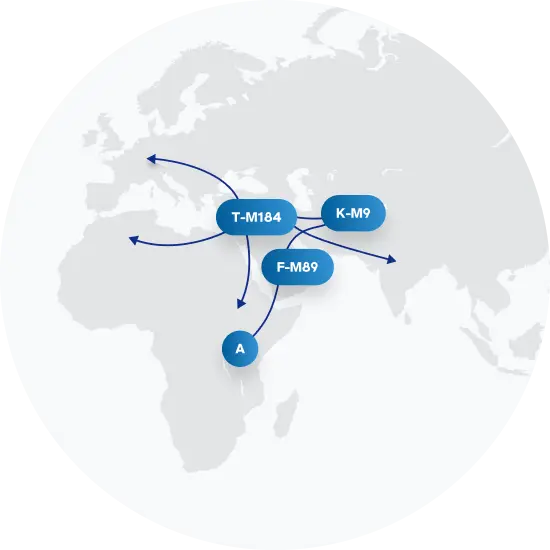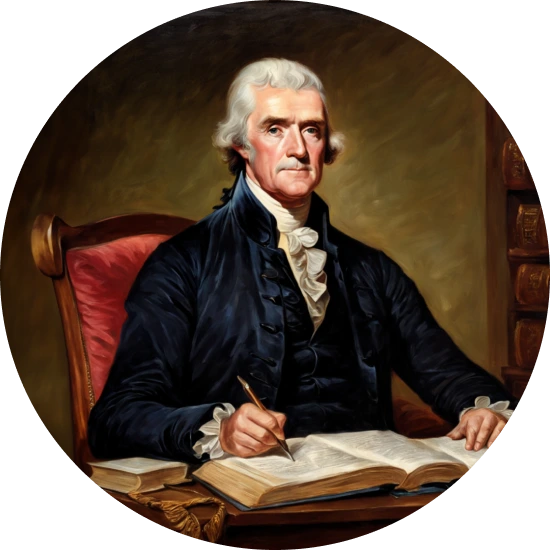Explore the Family Name Mann
How common is the last name Mann in the United States?
The popularity of the surname Mann, based on the Decennial U.S. Census data, has seen a minor decrease over the decade from 2000 to 2010. In 2000, Mann ranked as the 349th most popular surname, but by 2010, it had slipped to the 378th spot, marking an 8.31% drop in ranking. Despite this drop in ranking, the actual count of people bearing the surname increased by 3.07%, from 81,022 in 2000 to 83,510 in 2010. However, when considering the proportion per 100,000 population, there was a slight decrease of 5.73%, falling from 30.03 in 2000 to 28.31 in 2010.
| 2000 | 2010 | Change | |
|---|---|---|---|
| Rank | #349 | #378 | -8.31% |
| Count | 81,022 | 83,510 | 3.07% |
| Proportion per 100k | 30.03 | 28.31 | -5.73% |
Race and Ethnicity of people with the last name Mann
In terms of ethnic identity, the Decennial U.S. Census data for the surname Mann showed some shifts between 2000 and 2010. The percentage of those identifying as Asian/Pacific Islander and Hispanic saw significant increases, with the former rising from 2.41% to 3.61%, a 49.79% increase, and the latter from 1.81% to 2.66%, a 46.96% increase. There was also a smaller increase in those identifying as Black, up by 2.27% from 9.68% to 9.90%, and those reporting two or more races, which went from 1.73% to 2.12%, a 22.54% rise. The percentage of those identifying as American Indian and Alaskan Native also rose slightly, from 1.28% to 1.32%. Meanwhile, the percentage of those identifying as White fell by 3.26%, from 83.10% in 2000 to 80.39% in 2010.
| 2000 | 2010 | Change | |
|---|---|---|---|
| White | 83.1% | 80.39% | -3.26% |
| Black | 9.68% | 9.9% | 2.27% |
| Asian/Pacific Islander | 2.41% | 3.61% | 49.79% |
| Hispanic | 1.81% | 2.66% | 46.96% |
| Two or More Races | 1.73% | 2.12% | 22.54% |
| American Indian and Alaskan Native | 1.28% | 1.32% | 3.13% |
Mann ancestry composition
23andMe computes an ancestry breakdown for each customer. People may have ancestry from just one population or they may have ancestry from several populations. The most commonly-observed ancestry found in people with the surname Mann is British & Irish, which comprises 47.6% of all ancestry found in people with the surname. The next two most common ancestries are French & German (22.6%) and Ashkenazi Jewish (8.3%). Additional ancestries include Eastern European, Scandinavian, Italian, Spanish & Portuguese, and Northern Indian & Pakistani.
Ready to learn more about your ancestry? Get the most comprehensive ancestry breakdown on the market by taking our DNA test. Shop 23andMe
| ANCESTRY BREAKDOWN | COMPOSITION |
|---|---|
| British & Irish | 47.6% |
| French & German | 22.6% |
| Ashkenazi Jewish | 8.3% |
| Other | 21.5% |

Possible origins of the surname Mann
Your DNA provides clues about where your recent ancestors may have lived. Having many distant relatives in the same location suggests that you may all share common ancestry there. Locations with many distant relatives can also be places where people have migrated recently, such as large cities. If a large number of individuals who share your surname have distant relatives in a specific area, it could indicate a connection between your surname and that location, stemming from either recent ancestral ties or migration.
Based on 23andMe data, people with last name Mann have recent ancestry locations in the United Kingdom of Great Britain and Northern Ireland and Ireland.
| RECENT ANCESTRY Location | Percentage |
|---|---|
| Greater London, United Kingdom | 79.20% |
| Greater Manchester, United Kingdom | 79.00% |
| Merseyside, United Kingdom | 79.00% |
| West Midlands, United Kingdom | 78.90% |
| Glasgow City, United Kingdom | 78.90% |
What Mann haplogroups can tell you
Haplogroups are genetic population groups that share a common ancestor on either your paternal or maternal line. These paternal and maternal haplogroups shed light on your genetic ancestry and help tell the story of your family.
The top paternal haplogroup of people with the surname Mann is T-M70, which is predominantly found among people with European ancestry. Haplogroup T-M70 is descended from haplogroup T-M184. Other common haplogroups include R-Z255 and E-L29, which are predominantly found among people with European and European ancestry. Other surnames with similar common haplogroups are: Fisher, Cooper, Smith, Miller, Simon, Frank, Brown, Taylor, Green, Fischer.
The most common maternal haplogroups of people with Mann surname are: H1, T2b, H. These most commonly trace back to individuals of European ancestry.
 Paternal Haplogroup Origins T-M184
Paternal Haplogroup Origins T-M184
Your paternal lineage may be linked to Thomas Jefferson
Studies in 1998 and 2007 found that Thomas Jefferson, the third President of the United States, belonged to haplogroup T-M70. This discovery lends support to the notion that Jefferson was the father of Eston Hemings Jefferson, who also belonged to haplogroup T-M70, and who was the last son of Thomas Jefferson's slave Sally Hemings. However, it is also possible that Thomas Jefferson's brother Randolph, or one of Randolph's five sons, was the father of Eston Hemings Jefferson, because all of the Jefferson men share the same haplogroup. Though the T-M70 haplogroup is of Asian origin and is more common in Asia and East Africa than Europe, Jefferson came from an indigenous European branch of T-M70.
Your maternal lineage may be linked to Marie Antoinette
Because it is so dominant in the general European population, haplogroup H also appears quite frequently in the continent's royal houses. Marie Antoinette, an Austrian Hapsburg who married into the French royal family, inherited the haplogroup from her maternal ancestors. So did Prince Philip, Duke of Edinburgh, whose recorded genealogy traces his female line to Bavaria. Scientists also discovered that famed 16th century astronomer Nicolaus Copernicus traced his maternal lineages to haplogroup H.

What do people with the surname Mann have in common?
Spoiler alert: it's complicated. People with the same last name are usually no more genetically similar than a randomly sampled group of people from the same population. That said, people with the same surname are more likely to have similar ancestries than randomly sampled individuals. The reason is the tendency of people with similar cultural or geographical backgrounds to preferentially mate with one another. That's why people who share a surname may be more likely to share traits and tendencies in common than people within the general population. Check out the percentages below to see the prevalences of tastes, habits, and traits of people with your surname compared with prevalences among 23andMe users.
Preferences
Traits
Habits
Wellness
Are health conditions linked to the last name Mann?
The short answer is that, if there is an association between surname and health, it's usually more about your ancestry than your name. Individuals with a given surname are no more genetically similar than the general population but often have similar ancestries. The populations of people associated with those shared ancestries often have sets of genetic variations, also known as alleles, in common. Some of those alleles are associated with a greater likelihood of developing certain diseases.
Disease variant frequency by ancestry
Disease allele frequencies in populations associated with the surname Mann are shown below. Important Note: not everyone with a disease allele will develop these health condition





























